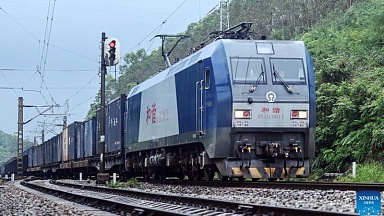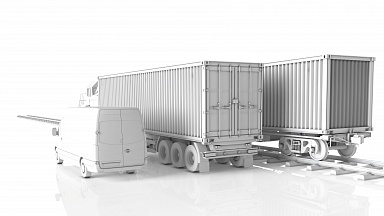«One platform in each port in madness,» said Roemer told a discussion on called ‘Platformisation — threat or opportunity’ at CLECAT’s Freight Forwarders Forum (FFF) 2021. «Our system cannot interact with them all.
«We want one interface so forwarders can interact with all the platforms that they want. Why does every port have its own platform?»
Roemer, who is a senior vice president within FIATA and Belgian forwarding association Forward Belgium, also raised the issue of how his data is used. «As a platform user, I am trying to navigate my way through the jungle — or should I say silos — of platforms,» he noted. «All of them want my data — but what if platform is owned by my competition? Tradelens is owned by shipping lines out to compete with me, so how do I make sure that my data is not used to go after my customers?»
Stewart Jeacocke of Tradelens, one of the other panellists, emphasised that commercial interests are always protected. «We all agree that trust between parties is crucial,» he noted.
«It is not that surprising that Jens and others question using platforms like ours where stakeholders are ocean carriers. But we already have shipping lines who are direct competitors who are using the platform — they realise that they get the benefit of sharing some information on platforms.
«The data-sharing agreement is a very detailed document. We have very clear written rules and legal agreements about who has access to the data — and well-defined rules about what you do with the data. That is crucial to building trust and collaboration.»
When Roemer asked if FIATA or another forwarder representative community could be included as a shareholder on the platform, Jeacocke replied: «Right now, ownership is set as it is, but long-term there is a recognition that success of Tradelens would be even greater if that were to change. But there is nothing more concrete than that now.»
Martijn Thijsen of the Port of Rotterdam explained that the role of a port was traditionally to provide hard infrastructure, noting: «Now see our role is also to provide digital infrastructure for the market to use. We can’t speak of linear supply chains anymore — it is all about networks with an ever-increasing number of players.
«We are a facilitator and work with other ports in Europe, carriers and terminals, industry bodies and authorities, shippers and digital forwarders and both data and trading platforms. This is going back to our core — we provide data-sharing infrastructure that people can use. We have an ecosystem and look at how to facilitate for platforms and other stakeholder groups to make them interoperable.»
Rudy Hemeleers, director at logistics business consultancy 51Biz, looked at how likely it is that a «platform of platforms» could be developed. «Could it come soon? We need to go step by step, not try to implement it in one go,» Hemeleers noted. «We should look at pilot projects running now on how to build a network of platforms and need to see that we can manage this properly.»
He stressed the importance of ensuring the industry and the shippers are included in the conversation, noting: «We have a problem that tech is sometimes so complex that it is difficult for the normal business user to understand what we are talking about.
«We need to keep the story simple to bring everyone with us and to build trust. The business user needs to find himself in this story. It needs to be as simple as e-banking in the way information flows.»
Roemer agreed that sharing data is in the interests of the industry and of its customers and consumers, noting: «It is most important of course that we will interface — there is no other option. We have very important data and we are prepared to share it.
«Let’s be positive. At the end of the day, it means I’ll work more productively, change my pricing and be more competitive.»



